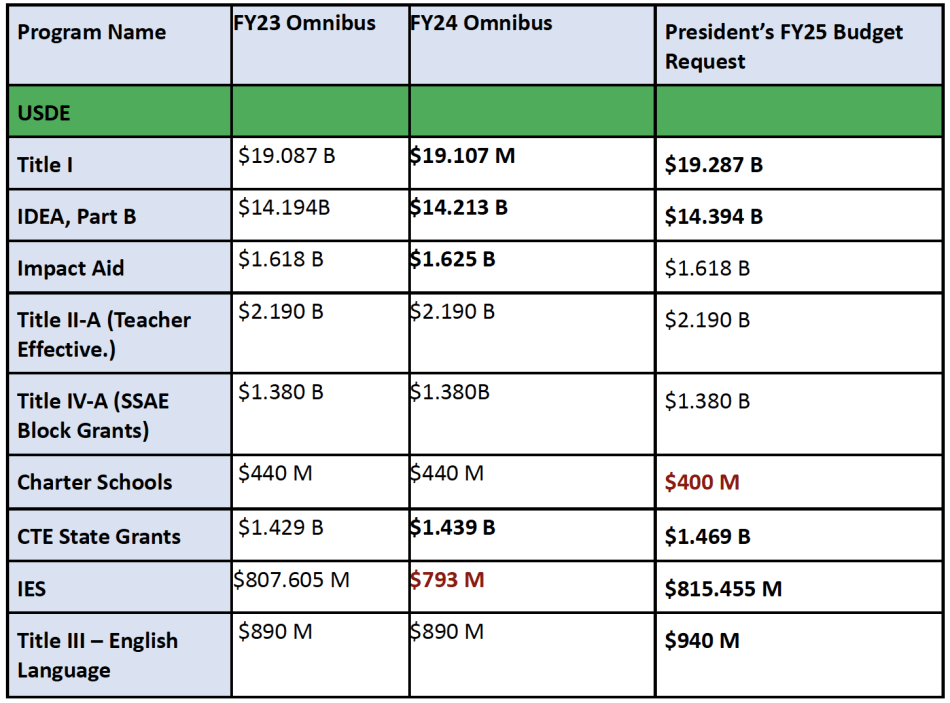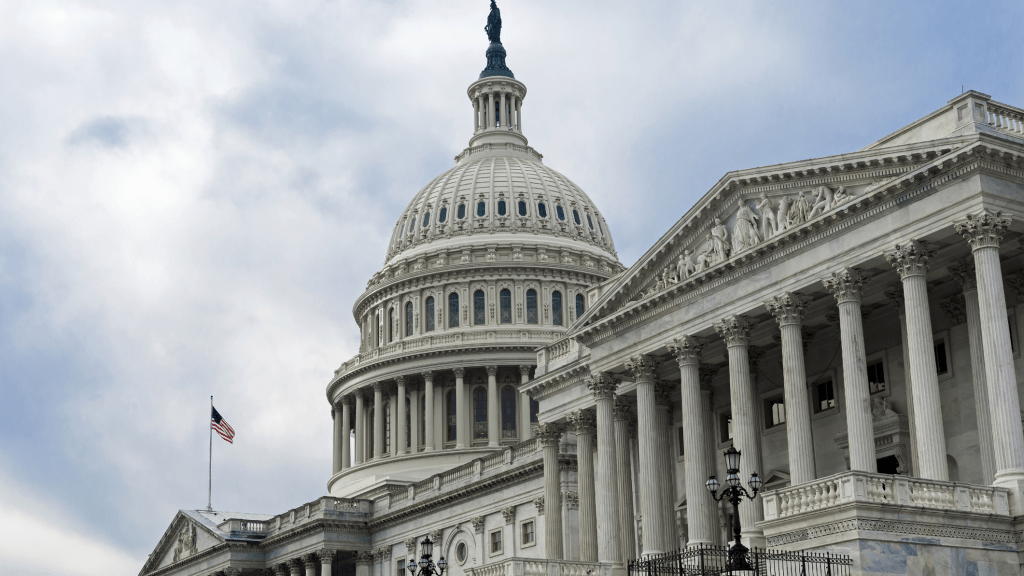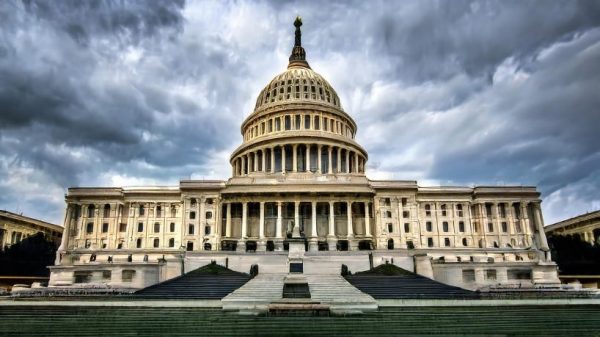Late last night, the Congressional Appropriations Committees unveiled their final agreement on fiscal year 2024 funding levels for the six appropriations bills that have not yet passed, including the Labor HHS Education bill. In this challenging budget environment and with an overall spending ceiling lower than in fiscal year 2023, the fact that this agreement provides most K-12 education programs with level funding, adds small increases to major title programs, and makes modest cuts to a few others represents a significant victory. Title II-A, the only program focused specifically on educator professional learning, received level funding – a major win after the House Appropriations Subcommittee proposed to eliminate it.
The House is expected to take up and pass this final package of fiscal year 2024 spending bills on March 22, with the Senate following suit shortly thereafter. With the current continuing resolution set to expire at midnight on Friday, there is a chance that the federal agencies receiving their funding through this package may shut down for a brief period as Congress completes final votes on it.
Overall, Congress’ final FY 2024 spending deal proposes to cut more than $235 million from the Department of Education’s budget, but most of those cuts come from the earmark portion of the Department’s budget. This reduction in member projects allowed congressional appropriators to provide most of the large federal title programs with either level funding (Title II-A, Title III and Title IV-A) or modest increases over fiscal year 2023 totals: Title I (+$20 million), IDEA (+$20 million), Perkins CTE (+$10 million) and Impact Aid (+$7 million).
One major K-12 casualty in this year’s funding crunch is the Teacher and School Leader Incentive Grants program, which will see its funding reduced from $173 million in fiscal year 2023 to $60 million in FY 2024 – a whopping 65% cut. This program, which is focused on providing grants to non-profit and for-profit entities to develop, implement, improve or expand comprehensive Performance Based Compensation Systems or Human Capital Management Systems for teachers and schools leaders, is supported by many national education associations for helping maximize teacher effectiveness.
The legislative report accompanying the final bill also included language that requests the Department to furnish to Congress within one year a report “on how states use this funding to increase educational opportunity and student achievement by improving the effectiveness of teachers, principals, and other school leaders.” This report is to be made publicly available on the Department’s website.
Below is a breakdown of key K-12 program funding levels:







